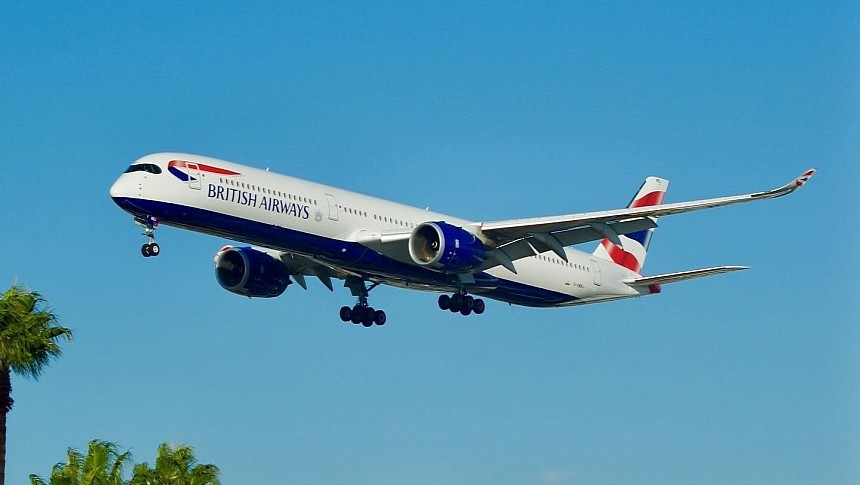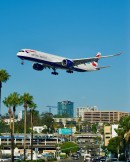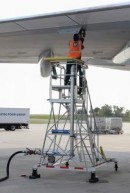As 2030 approaches, countries all over the world are working to set up a domestic SAF (sustainable aviation fuel) industry, which is the only effective way of achieving the net-zero target goal in commercial aviation by the end of the decade. Three companies recently obtained government funding that will support the UK's ambition to become a leading SAF hub.
The UK Government's Net Zero Strategy, introduced two years ago, includes the highly ambitious goal of becoming "a leader in zero-emission flight." To get there, Britain is focusing on SAF. The targets are straightforward: to commercialize domestically-produced alternative fuels leading up to 10% SAF by 2030 and to have at least five commercial-scale SAF-producing facilities under construction by 2025.
Last summer, the Department of Transport launched a dedicated program for accelerating SAF production. It's called the Advanced Fuel Fund (AFF), and it will run until March 31, 2025. The program's second tranche, worth a total of $11.4 million (£9 million), was recently awarded to Project Speedbird.
Project Speedbird is a joint partnership between three important players. LanzaJet is a company that has developed a proprietary technology for converting ethanol into SAF. British Airways is a founding investor and shareholder of LanzaJet. Nova Pangaea Technologies (NPT) is another cleantech company that has developed an innovative process of turning wood residues and agricultural waste into biofuel.
Project Speedbird was launched with a clear goal. It aims to produce 27 million gallons (102 million liters) of SAF per year, which will be used entirely by British Airways. According to LanzaJet, this quantity will reduce the CO2 emissions equivalent to 26,000 British Airways domestic flights (throughout the net lifecycle).
It sounds easy, but it will take years to get there. Project Speedbird will only reach full production capacity by 2028. That's partially because the project involves setting up a pioneering SAF facility in the UK, which won't be ready to operate earlier than 2027. What makes it unique is that it will implement LanzaJet's proprietary ATJ (alcohol-to-jet) technology.
Initially, SAF will be produced at LanzaJet's plant in Soperton, Georgia, which claims to be the first one in the world to use this particular technology. Here's how things will go: first, NPT will use its revolutionary technology to transform sustainable resources, such as agricultural waste, into second-generation biofuels. Ethanol is one of these fuels, and the one obtained by NPT will then be sent to the Georgia-based factory, where it will become SAF through the ATJ process.
By 2027, the UK-based facility, which will also be larger than the one in Georgia, will take over the project's SAF production. This recent funding through the AFF competition will help Project Speedbird get to that stage and pave the way for an emerging SAF industry in the UK.
Last summer, the Department of Transport launched a dedicated program for accelerating SAF production. It's called the Advanced Fuel Fund (AFF), and it will run until March 31, 2025. The program's second tranche, worth a total of $11.4 million (£9 million), was recently awarded to Project Speedbird.
Project Speedbird is a joint partnership between three important players. LanzaJet is a company that has developed a proprietary technology for converting ethanol into SAF. British Airways is a founding investor and shareholder of LanzaJet. Nova Pangaea Technologies (NPT) is another cleantech company that has developed an innovative process of turning wood residues and agricultural waste into biofuel.
Project Speedbird was launched with a clear goal. It aims to produce 27 million gallons (102 million liters) of SAF per year, which will be used entirely by British Airways. According to LanzaJet, this quantity will reduce the CO2 emissions equivalent to 26,000 British Airways domestic flights (throughout the net lifecycle).
It sounds easy, but it will take years to get there. Project Speedbird will only reach full production capacity by 2028. That's partially because the project involves setting up a pioneering SAF facility in the UK, which won't be ready to operate earlier than 2027. What makes it unique is that it will implement LanzaJet's proprietary ATJ (alcohol-to-jet) technology.
Initially, SAF will be produced at LanzaJet's plant in Soperton, Georgia, which claims to be the first one in the world to use this particular technology. Here's how things will go: first, NPT will use its revolutionary technology to transform sustainable resources, such as agricultural waste, into second-generation biofuels. Ethanol is one of these fuels, and the one obtained by NPT will then be sent to the Georgia-based factory, where it will become SAF through the ATJ process.
By 2027, the UK-based facility, which will also be larger than the one in Georgia, will take over the project's SAF production. This recent funding through the AFF competition will help Project Speedbird get to that stage and pave the way for an emerging SAF industry in the UK.








